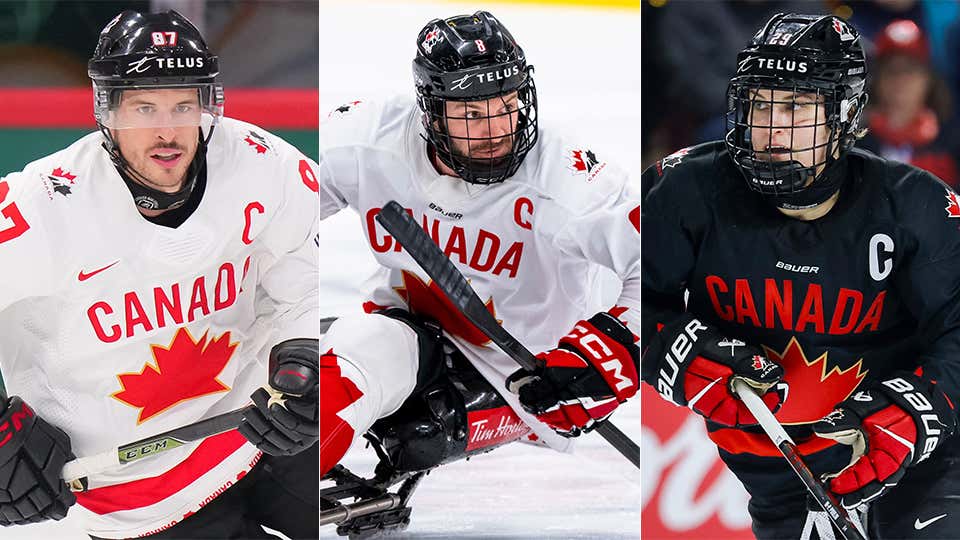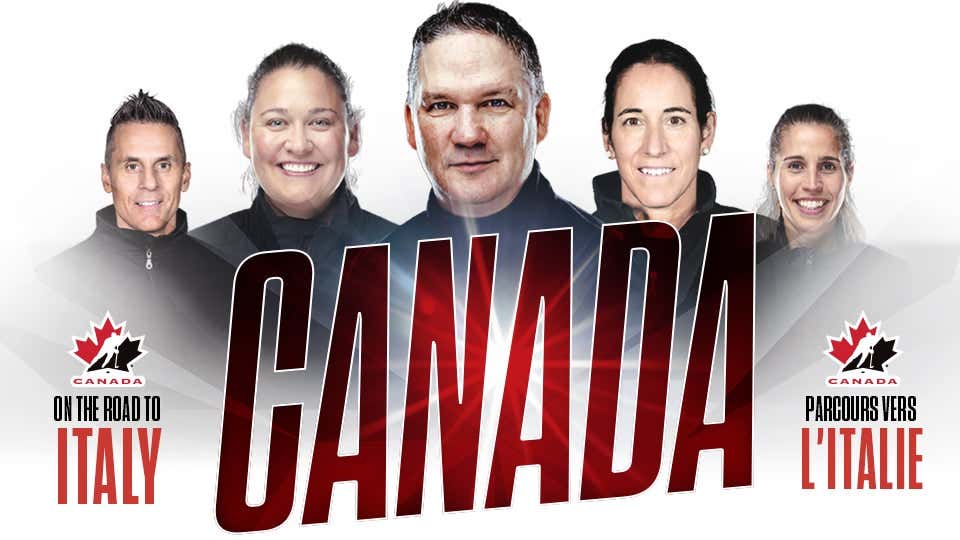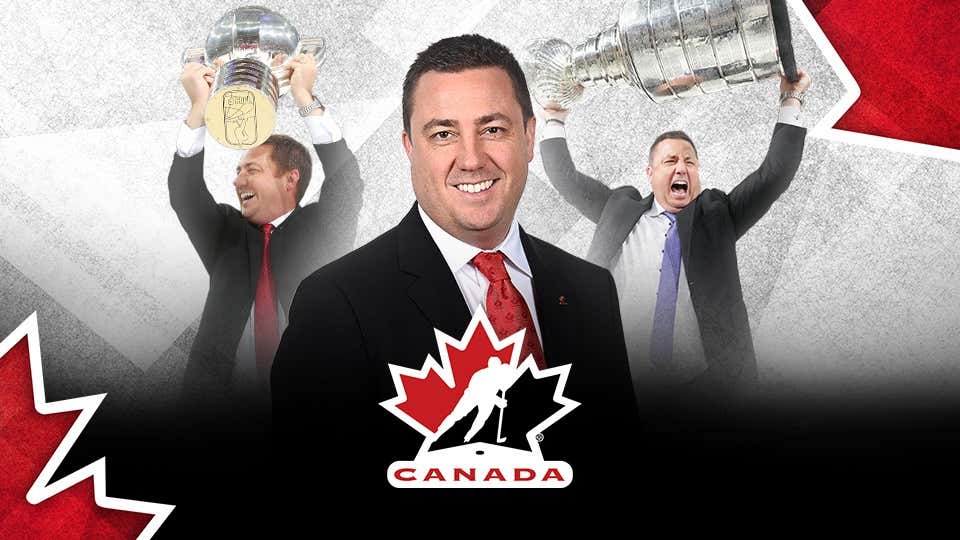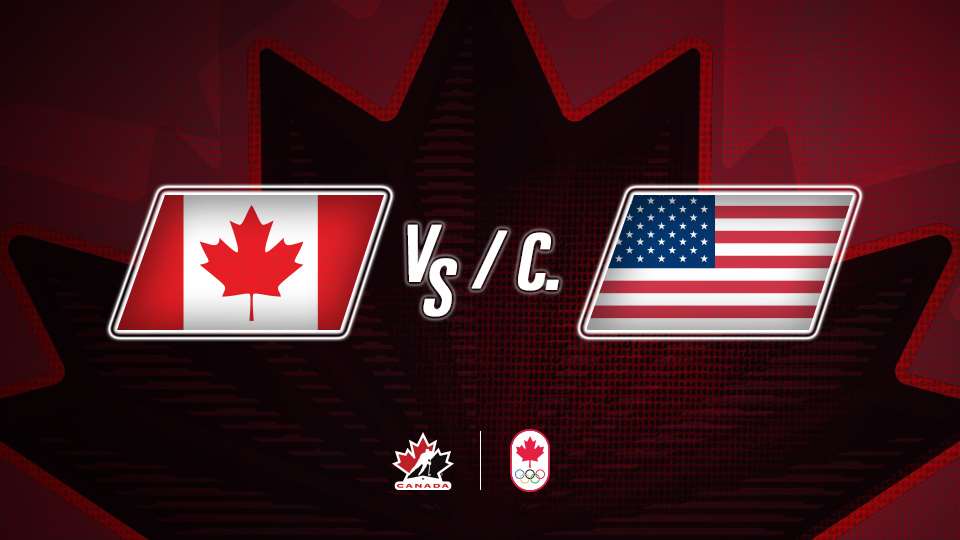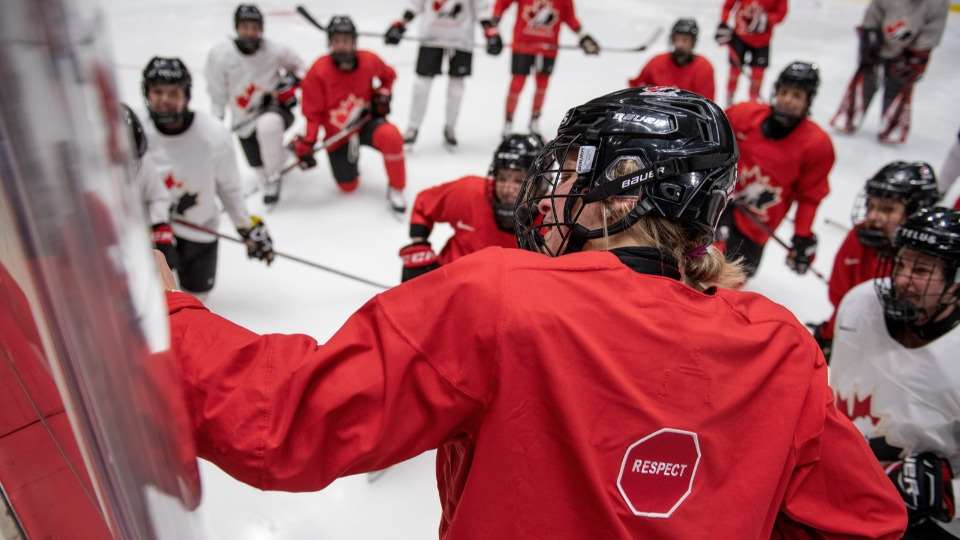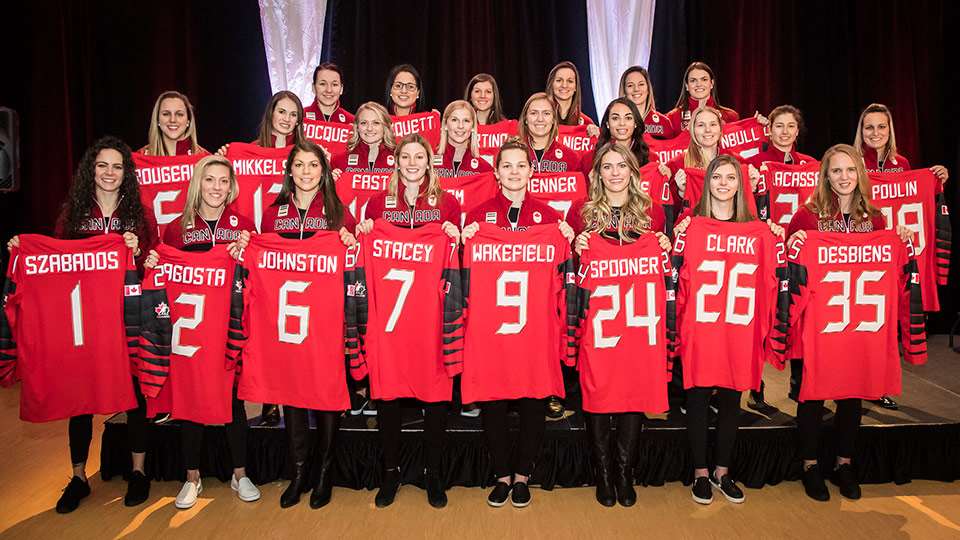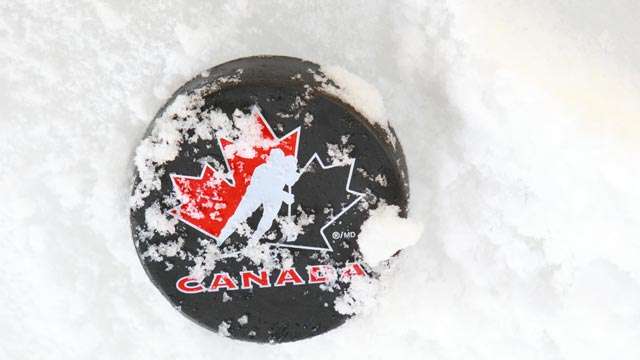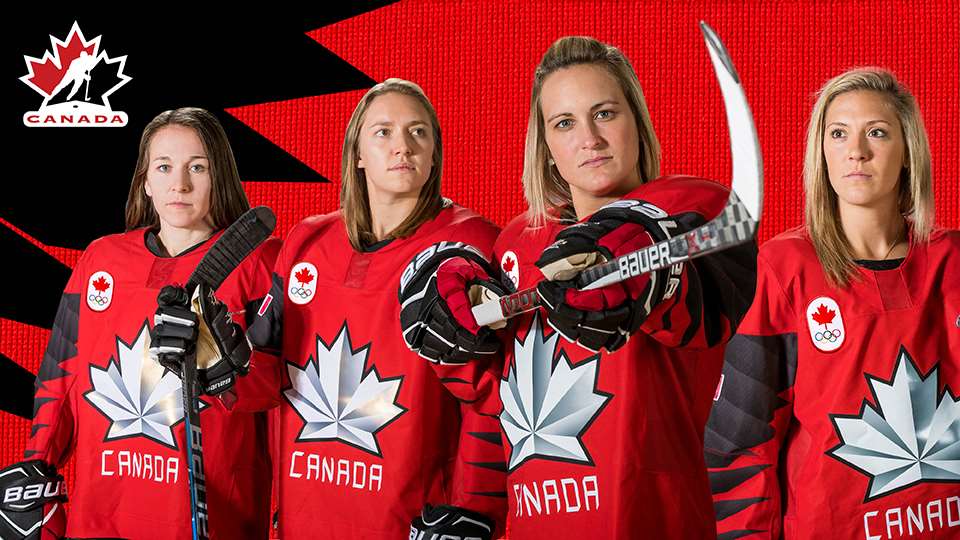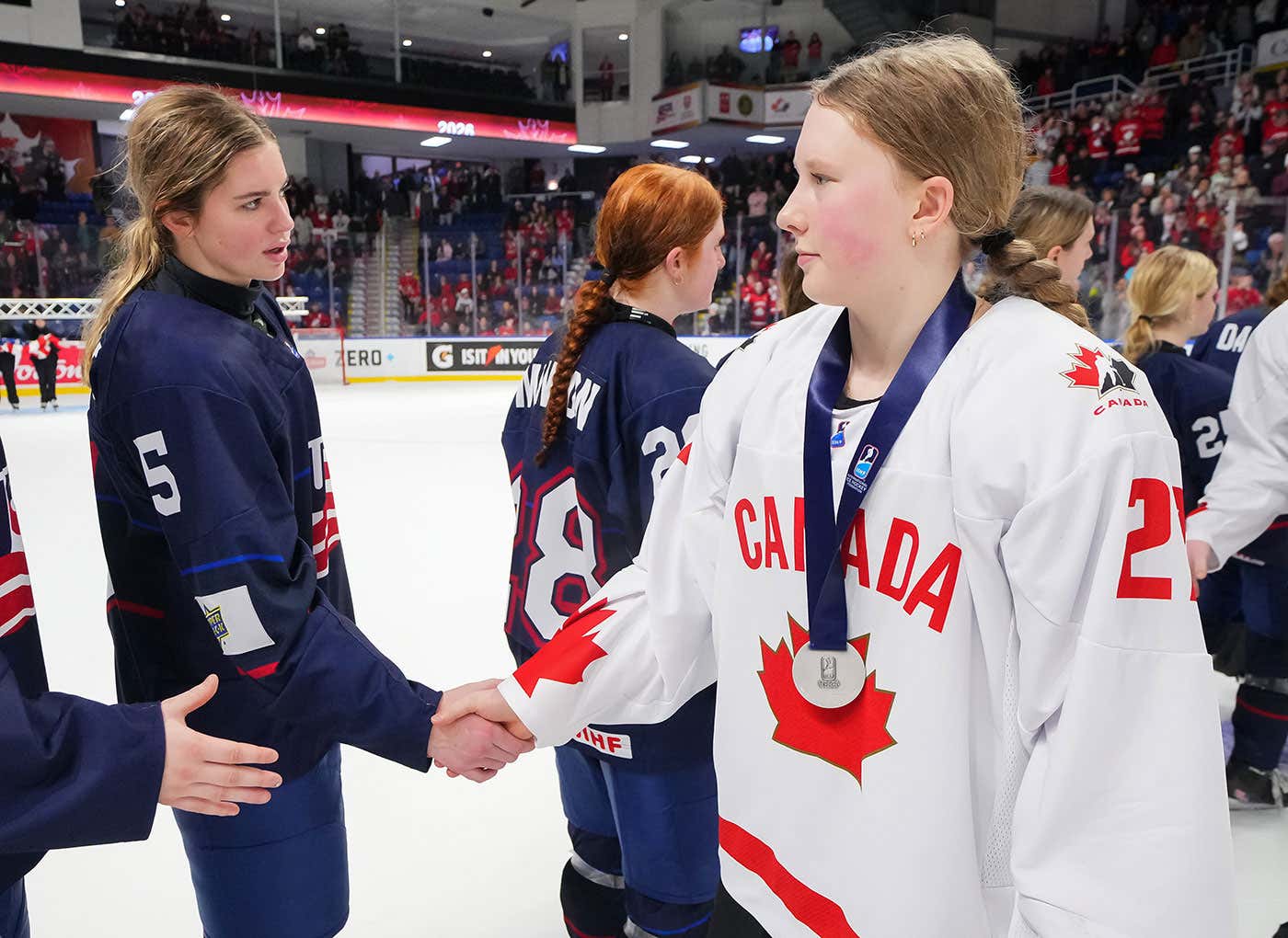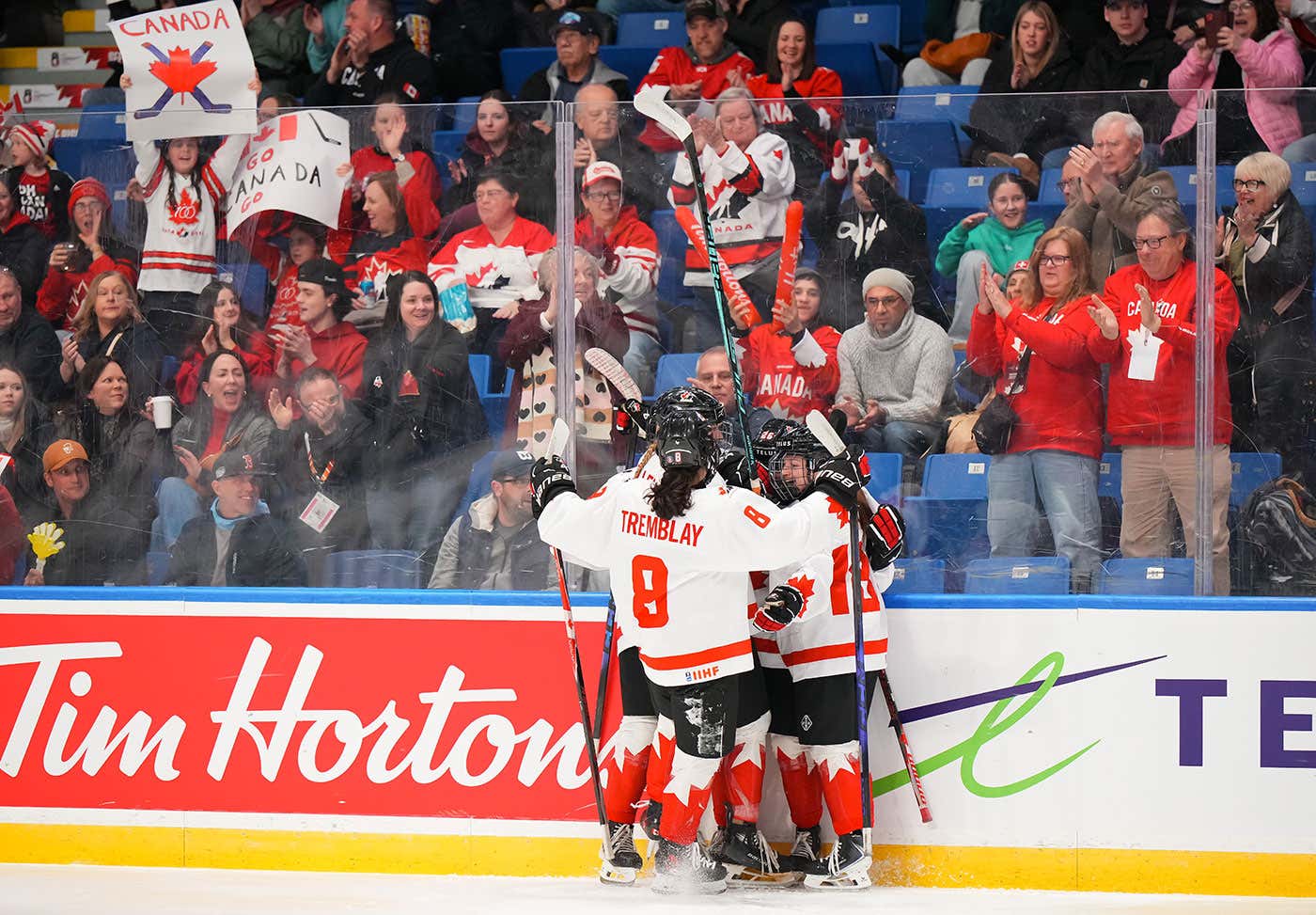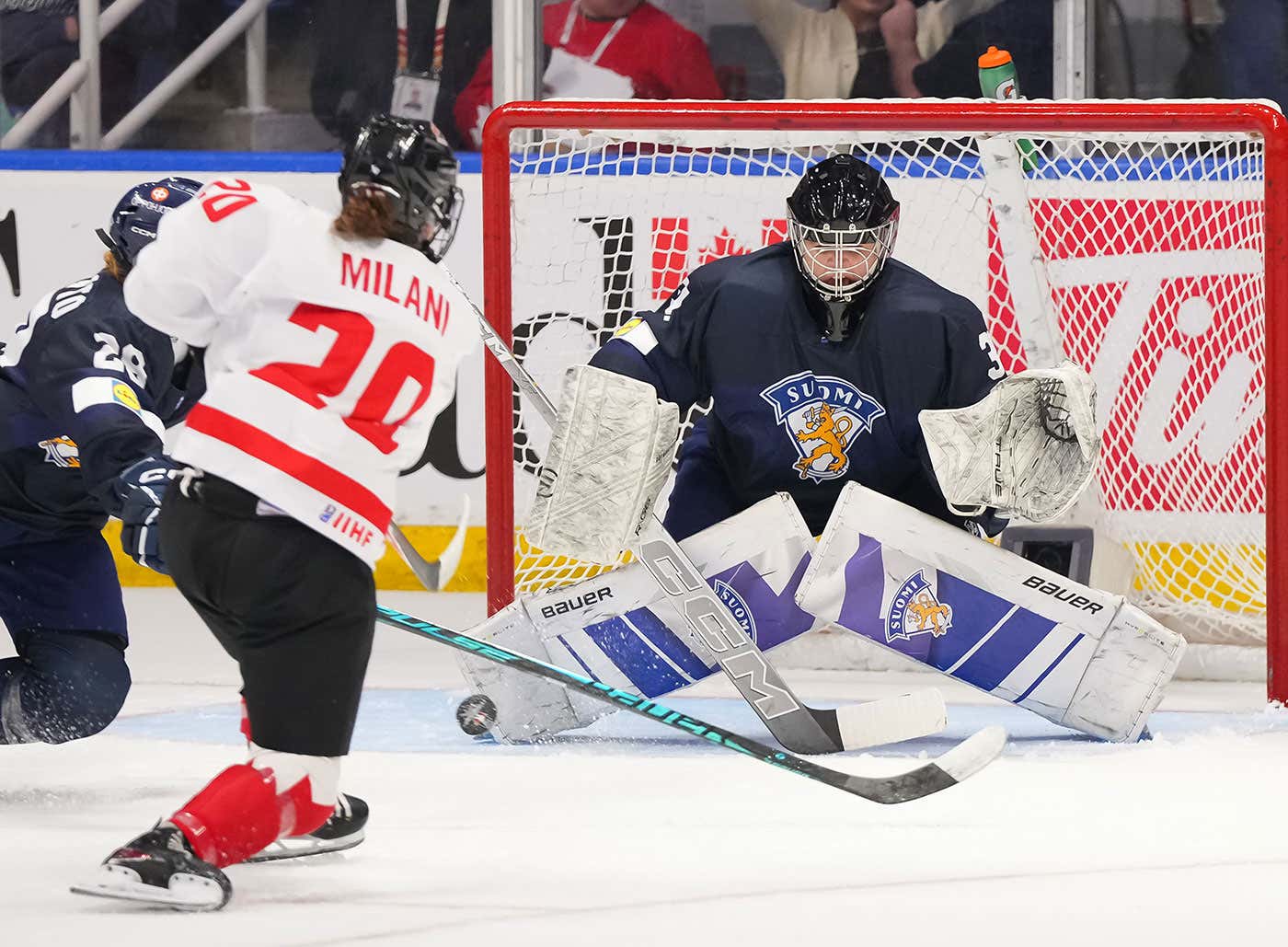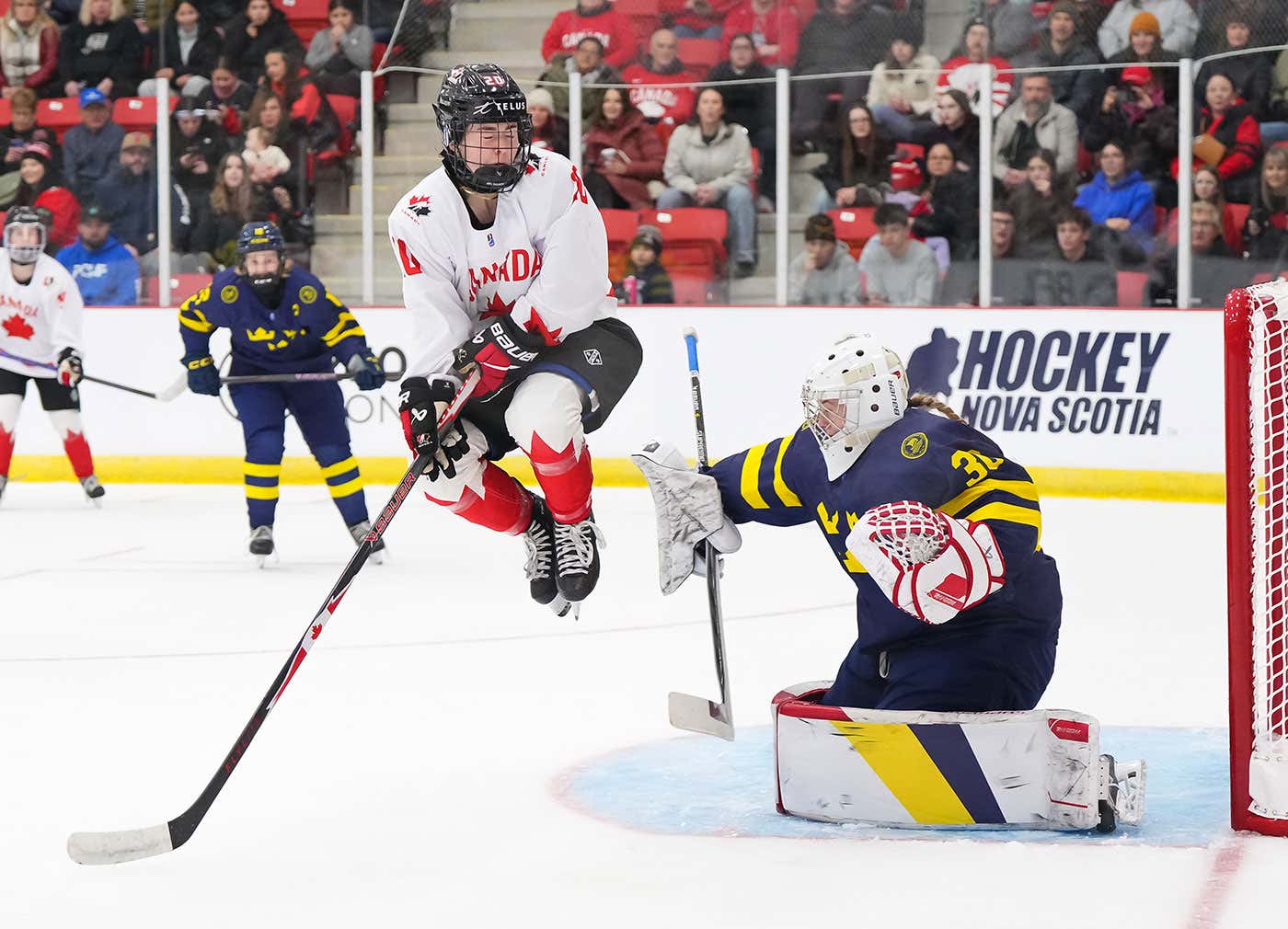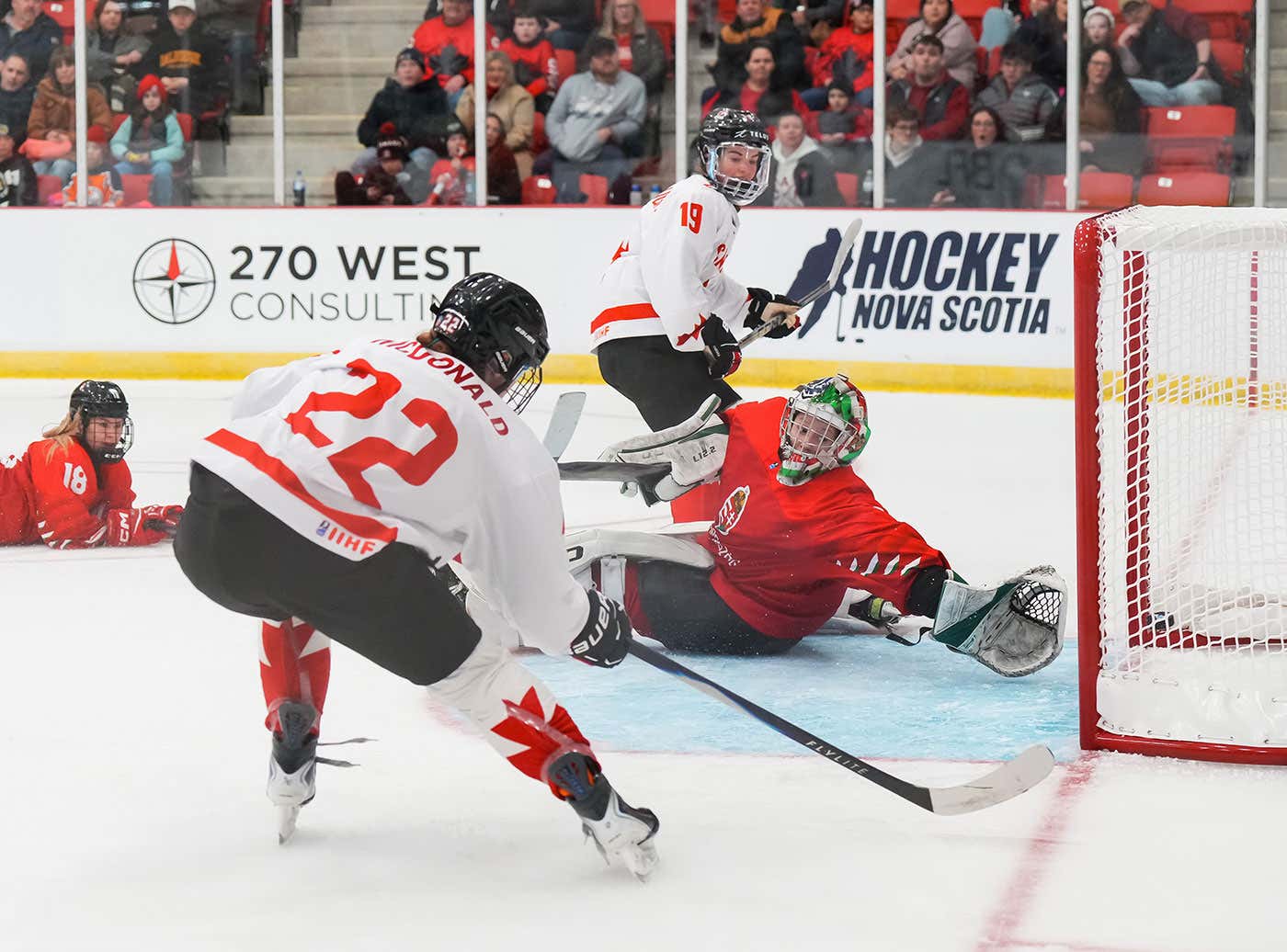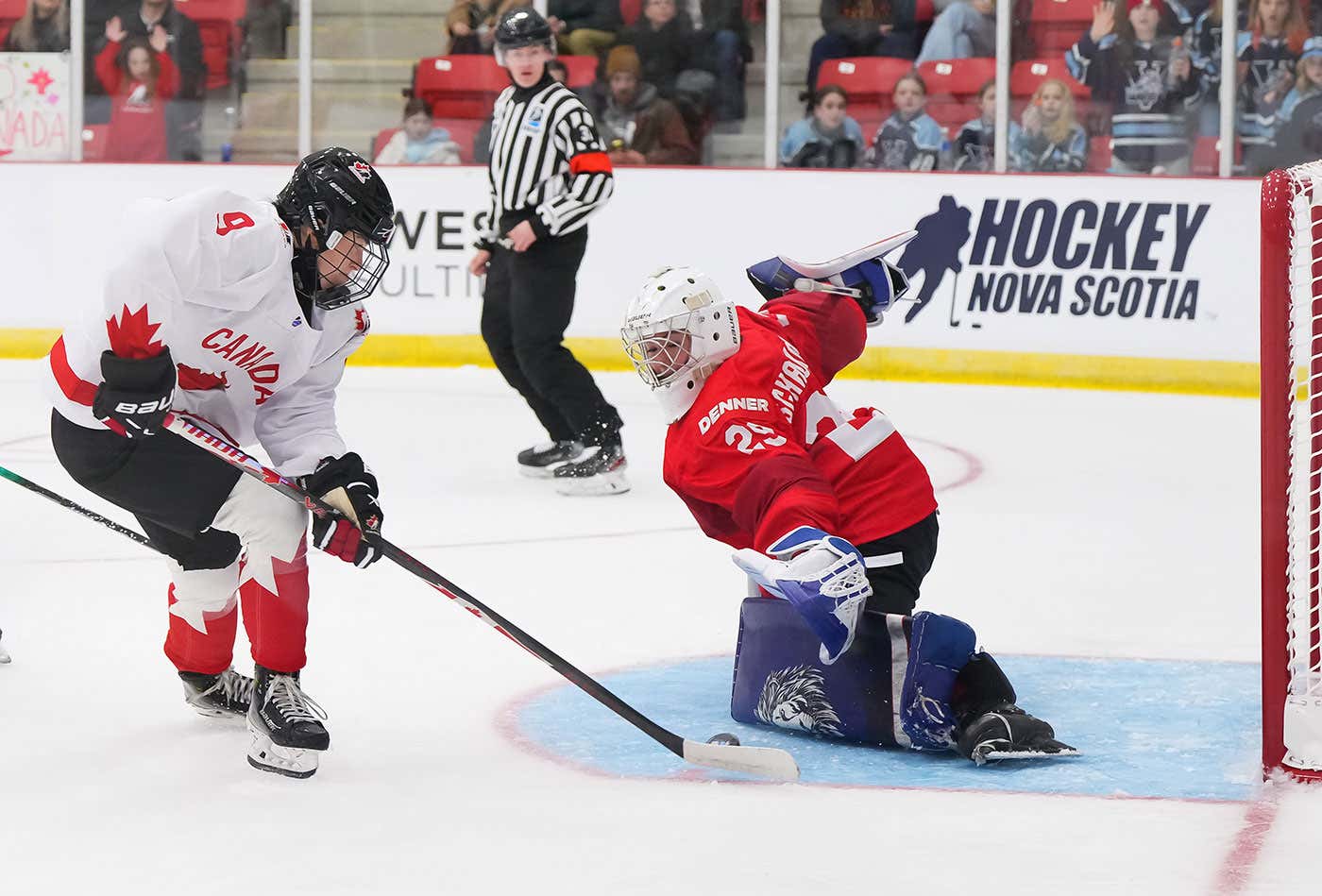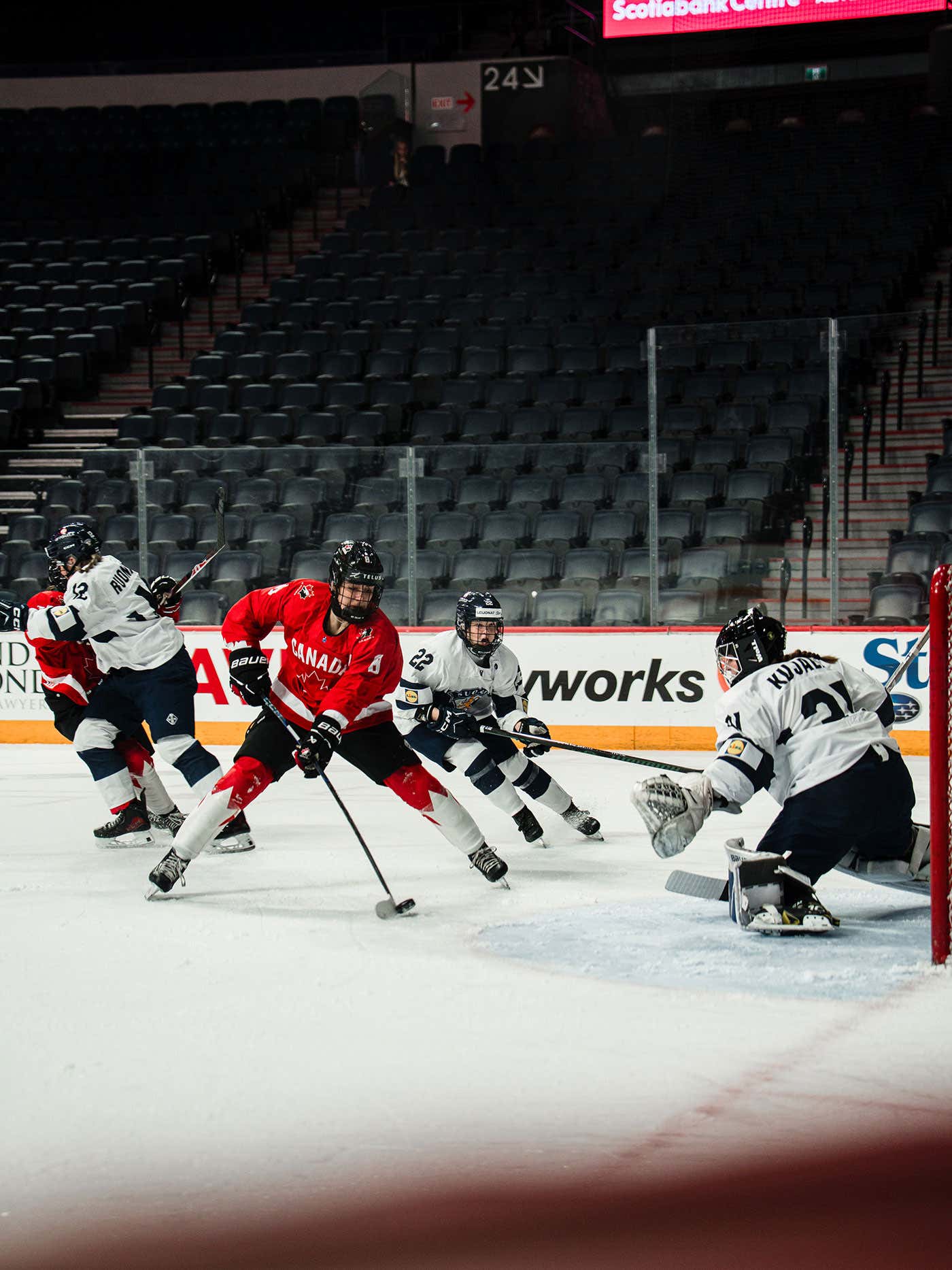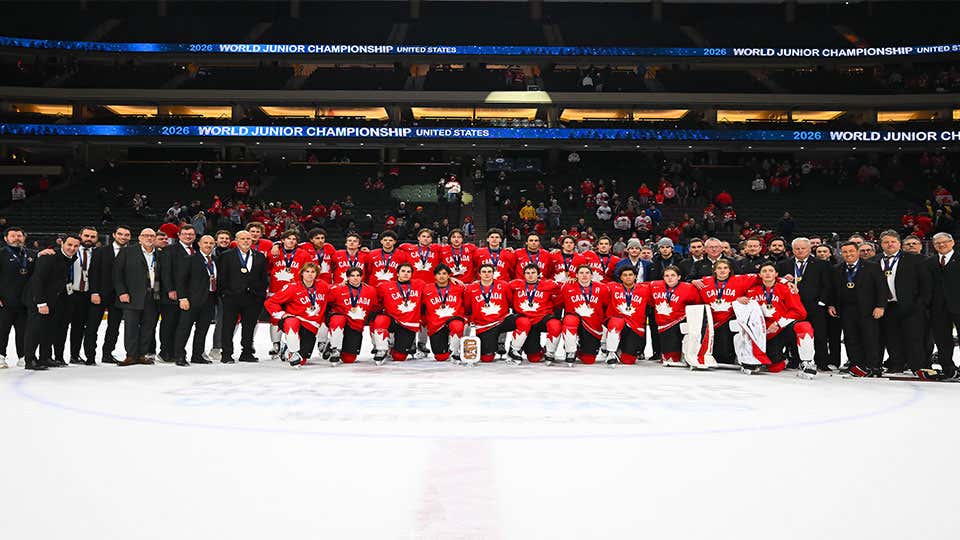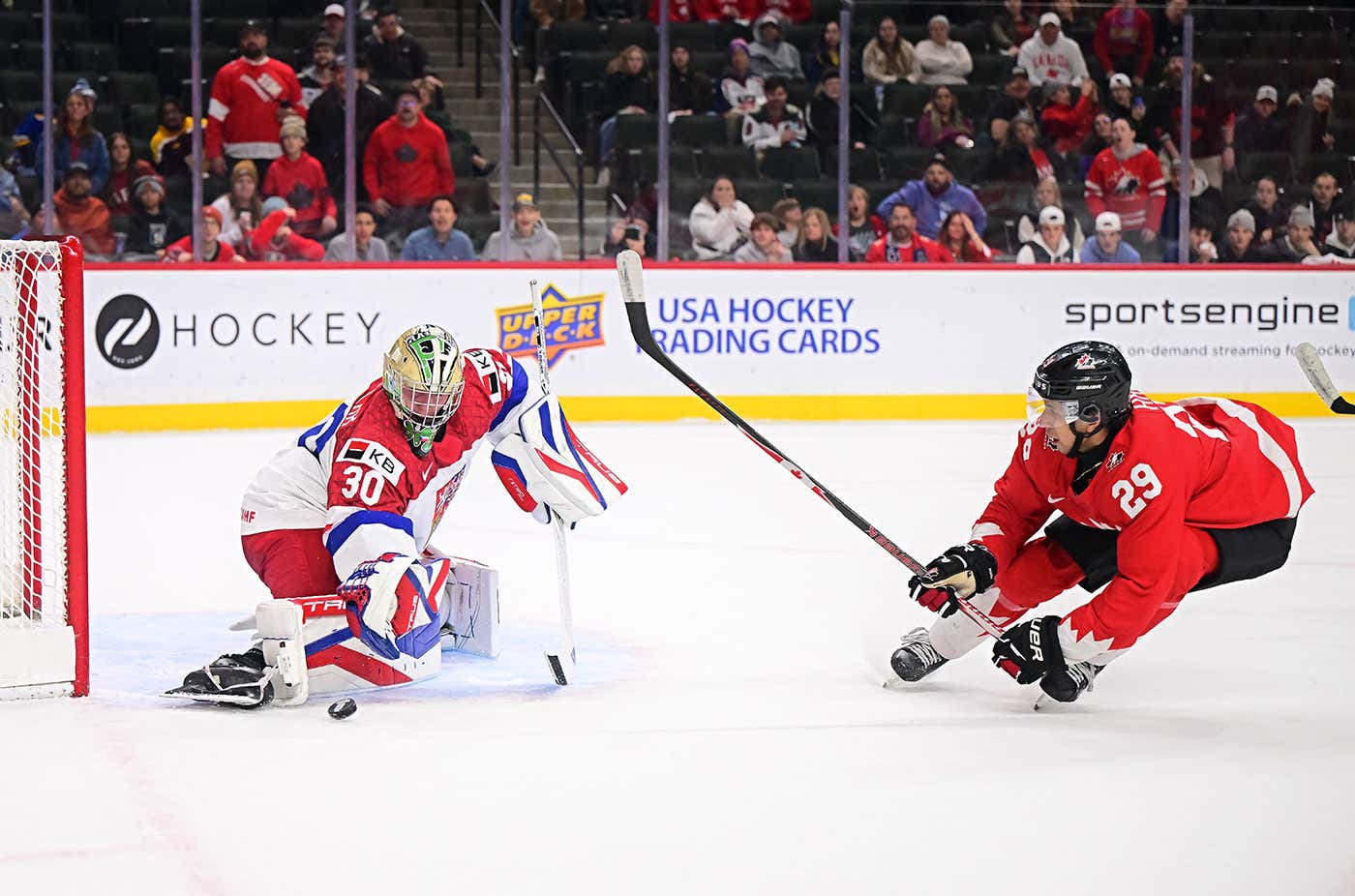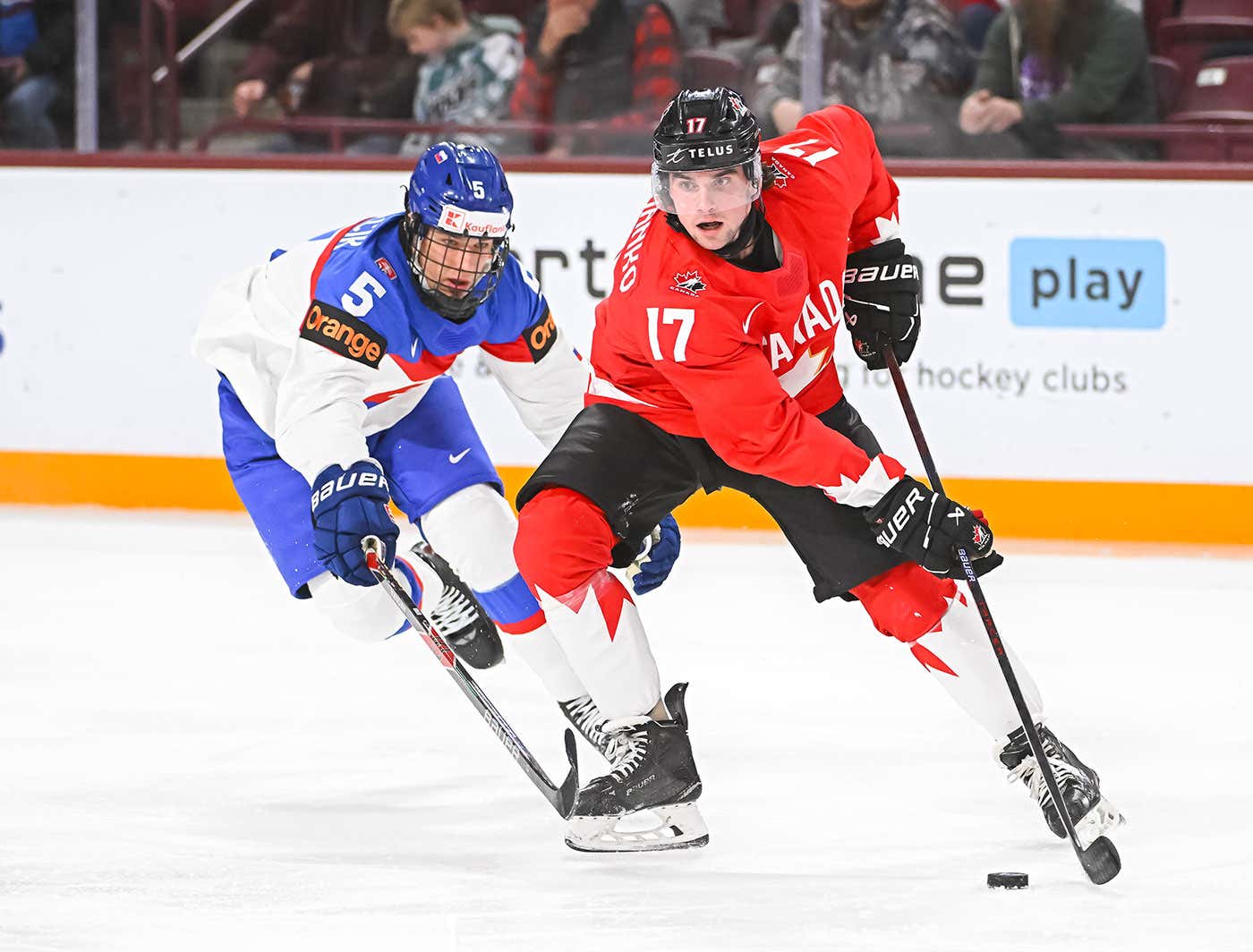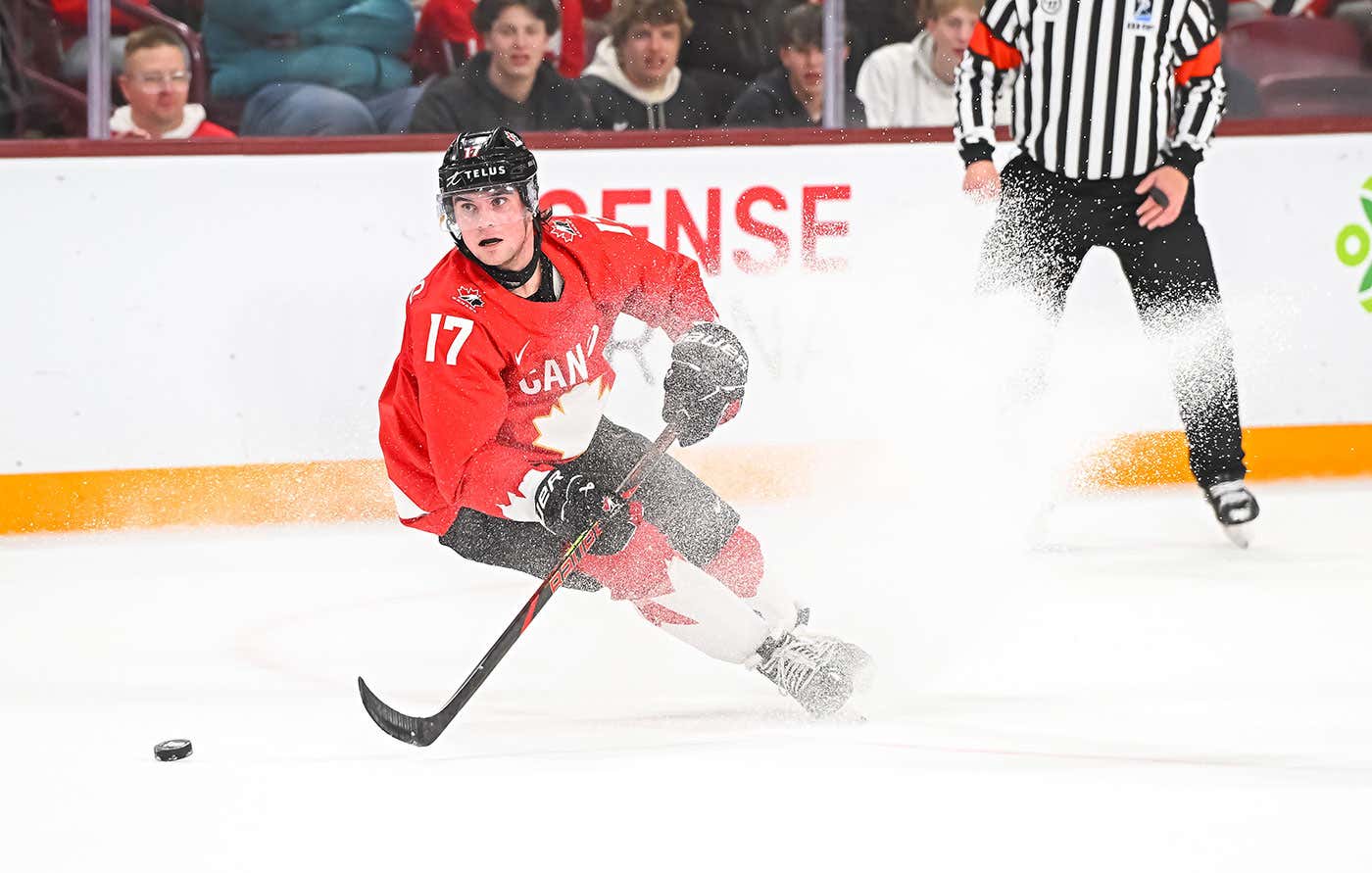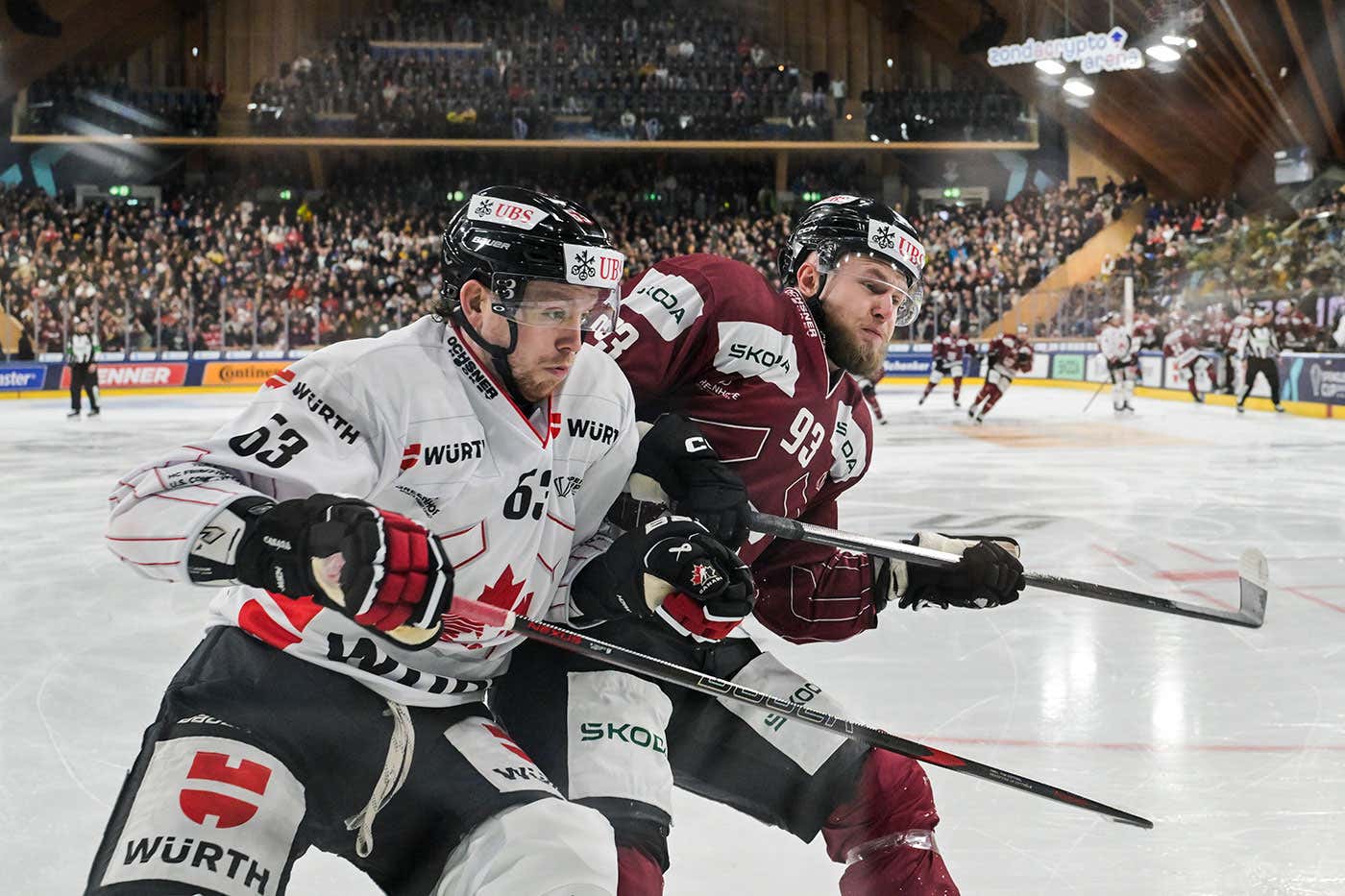
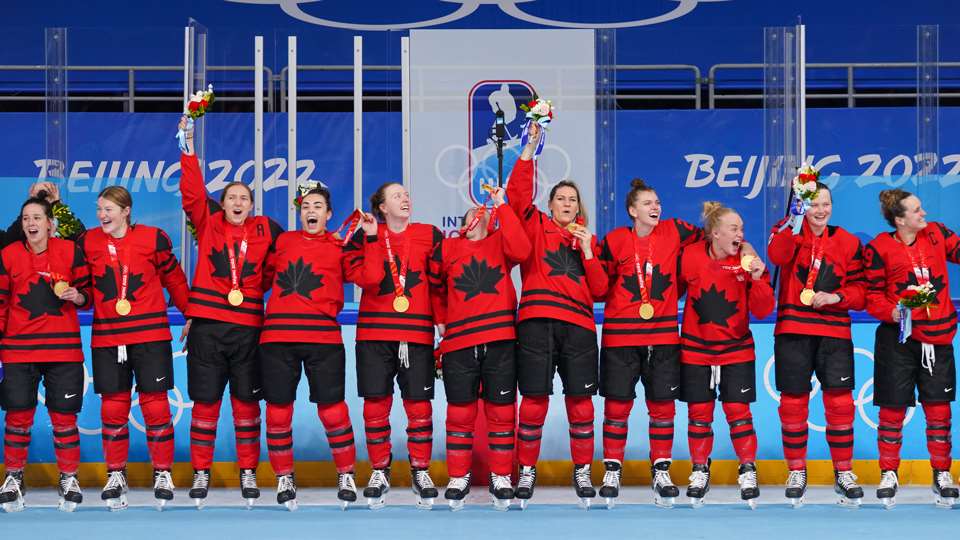
Doing things “Our Way”
After two years of adversity, Canada’s National Women’s Team sits atop the hockey world, bonded more by their friendship than what they accomplished on the ice

Resilience refers to the capacity to recover quickly from difficulties.
While all great teams face obstacles on route to the top, few teams can say they were able to navigate them as well as Canada’s National Women’s Team.
Through a global pandemic, event cancellations, isolations and so much more, the 2021-22 edition of Team Canada rose above time and time again, staying committed to achieving greatness “our way.”
After COVID-19 wreaked havoc on the 2019-20 season, 2021 looked to provide a sense of normalcy, with the IIHF Women’s World Championship set for April in Halifax and Truro, N.S. But less than two weeks before the puck was set to drop, the Province of Nova Scotia withdrew its support of the event, citing rising COVID-19 numbers.
“I think going into April, we were fully expecting to play, and we felt very prepared,” remembers Blayre Turnbull, a Stellarton, N.S., native and one of two Nova Scotians on the Team Canada roster. “So obviously there was a huge sense of disappointment when things got cancelled, but I think it did really bring the group even closer together. It was a piece of adversity that at the time was devastating, but in hindsight, I think it really helped bond our group, and I think it made us even more grateful for the upcoming camps and tournaments and time that we got to spend and play together.”
Staying adaptable and open-minded proved vital as the team navigated a COVID “bubble” last summer as the rescheduled women’s worlds took shape in Calgary in August. With no fans, friends or family, the team grew even closer away from the rink as their efforts on the ice started to pay off.
Sarah Fillier, who finished with three goals and three assists in her world championship debut, remembers the adjustments she had to make playing in front of an empty arena: “Being able to wear that jersey, one of the things you think about is just your parents and really close friends getting to watch you compete on that international stage. “The team turned into a family for all of us, and we were trying to adapt to a situation that no one really ever has before, and luckily, we were an incredibly close group.”
Canada hadn’t won women’s worlds gold since 2012—the Americans had claimed the past five world titles, four with wins over the Canadians in the final. That hunger fed Team Canada, which vowed to take back the top spot from their rivals on home ice.
The team captured the hearts and minds of Canadians with their run in Calgary, going undefeated with 34 goals in seven games. The bond between teammates and excitement for the return of women’s hockey was clear as constant smiles, hugs and goal celebrations were accompanied by convincing wins – 5-1 over ROC, 5-0 over Switzerland and 5-1 over the U.S. (Canada’s biggest win over its rival since 2017).
But they saved the best for last. A back-and-forth gold medal game needed overtime after Canada erased an early two-goal deficit, and it was two of the most seasoned veterans that combined on history.
With 25 years on the national team between the two of them, Brianne Jenner and dashed down the ice in 3-on-3 overtime, Jenner connecting with Poulin like the linemates had done so many times before.
The rest is history.
That golden moment was more than a world championship win. It marked the return of hockey not just for Team Canada, but for so many Canadians who in just a few short weeks would getting back on the ice after a lost season of sorts in 2020-21.
The world title was just the beginning, though. With gold medals around their necks, celebrations lasted only a week or so as eyes turned forward toward the next goal—gold at the 2022 Olympic Winter Games.
“I think everybody really appreciated coming out of the pandemic and having an opportunity to compete for world championships,” says head coach Troy Ryan. “So that was huge. But then to get validated for all the little adjustments and changes that all of us had to make for each other, seeing them get rewarded for all their hard work, you knew that that commitment would remain, heading into the Olympics as well.”
On a journey with even more obstacles ahead, buy-in from the group was crucial, knowing the stress of navigating a pandemic on top of trying to make an Olympic team could break down even the most veteran teams.
“We had many Zoom calls, group texts, so many different conversations about what we thought was best for the team and how we could make the most out of our training camp and our quarantine at the hotel, and really keep girls positive and make sure that everybody knew that although we had just been through so much adversity, we were fully prepared to play and we were fully prepared to win,” Turnbull says. “And I think once we hit the ice, it was really evident that it was going to be hard to stop our team.”
The season began in September with 29 athletes centralized in Calgary. The team faced teams from the B.C. Hockey League and Alberta Junior Hockey League, took to the ice for Rivalry Series matchups against the United States and travelled abroad for a three-game series against Finland as part of their Olympic preparations.
“As a team, we traveled so much, which is super taxing on the body,” says Turnbull, who missed the early part of the season after breaking her ankle in the dog pile following Poulin’s overtime winner at worlds. “We went from Calgary to Finland, to Toronto, Kingston, Ottawa. We were away for so much of the season.”
And with that travel came the increased risk of COVID-19, the team navigating close encounters on top of the stressors of cuts to the centralization roster as the Beijing Games approached.
Much of the credit, according to Poulin, goes to director of hockey operations Gina Kingsbury and team physician Dr. Tina Atkinson, who handled the pandemic logistics while the team focused on the ice. “I don’t know how much they slept in the past year, to be honest,” Poulin says with a smile. “Gina and Doc were super amazing to work with. They told us what was happening and [were always] on top of things. This group was really adaptable and very resilient.”
The pandemic threw yet another wrench into their season just over a month before the team was due to depart for Beijing, cutting short a late-December road trip in the U.S. and forcing the cancellation of the final leg of the Rivalry Series just as the final Olympic team was to be named.
“After Christmas, it was probably the most stressful time of the year after the team was picked,” Turnbull recounts. “And we were training in Calgary in January with the goal of making it to China as a team but understanding how difficult it was going to be over the next three, four weeks.”
After a few more weeks of isolated training in Calgary, sometimes practicing in masks (as would prove handy in their Olympic showing against ROC), the 23 Olympians set off for Beijing—10 for their first Olympic Games ever—on a mission to be golden once again.
And just like they were in Calgary, Canada was historically good in Beijing.
The Canadians went undefeated again, with Team Canada first-timer Claire Thompson setting a new Olympic record for most points by a defenceman and Sarah Nurse breaking the records for most assists and most points in one Games.
“One of the coolest things that surfaced through [the Olympics] was we didn't know where we would get goals from, we just knew we would get some,” reflects Ryan—who served as an assistant coach when Canada settled for silver at the 2018 Olympics. “Same thing defensively. It wasn't just [Jocelyne] Larocque and [Renata] Fast that did the job, there were other people that stood up.
“There were people breaking individual records at the Olympics. It was almost like they weren't even aware. They didn't get caught up in it. It was like a knuckle tap and a smirk and away you go. To me, that was cool.”
And as the hockey gods would have it, the Canadians would have to go through their storied rivals once again with gold on the line.
Nurse and Poulin scored in the first period, Poulin added another midway through the second and not even a late-game push by the Americans could overpower Team Canada—it was Olympic gold for the fifth time in six Games with Poulin netting the game-winner, making her the only player ever—man or woman—to score in four consecutive Olympic finals.
“I was counting down on the bench, and I remember when we hopped off at the end of the game, I just immediately started crying,” Fillier recalls. “I just remember being speechless, for at least 24 hours, about how I just had this gold medal in my hands.”
The explosion of tears and hugs commemorated more than just another Olympic victory, they were celebrations of every past struggle and challenge, the team’s commitment paying off at last.
“This is the best hockey team that I've ever been a part of,” says Turnbull. “And I'm not including any of the records we set at the Olympics. That's just because of the people in the locker room and the teammates that I got to share so many memories with.”
Through staffing changes, new rosters, cancellations and pandemics, the 2021-22 edition of Canada’s National Women’s Team persevered through the most trying of times, winning hockey’s biggest prizes and doing it their way.
“We started with ‘Our Way’ and we stuck with it all the way to the end,” says Poulin. “We stuck together. The coaching staff, the GM, they had our plan, and for us, we're just following it. Following along and doing our best. Being resilient, buying in and having fun after it all.”
For more information: |
- <
- >

















